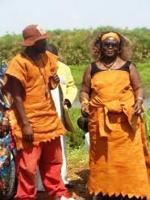Scott Christian University Kenya
Have you ever visited Scott Christian University Kenya; Do you information about courses taken by this university in Kenya? All you need to know about this college in Kenya is at this page.
Scott Theological College Scott Theological College was established in 1962 as the national theological College of the Africa Inland Church, Kenya (AIC).
Scott Christian University Admission Requirements
All students applying for Diploma, Bachelor or Master's level programmes are required to be at least 17 years of age.
The applicant should have a firm conviction of a call from God to ministry in the church or related areas of Christian ministry, confirmed by a letter of recommendation from the pastoral oversight of the applicant's church In addition, all students should meet the following personal characteristics:
• A personal testimony of conversion and faith in Jesus Christ that is in harmony with the doctrinal basis of the College.
• A life of obedience to the Word of God and a Christlike character demonstrating love, joy, peace, patience, kindness, goodness, faithfulness, gentleness, and self-control (Galatians 5:22, 23).
• An active involvement in Christian witness and service within the church community.
• Recognition by the church of which the applicant is a member that the applicant is a genuine Christian, faithful to God and the local church, and fit for training in a theological college.
• Diploma in Theology (Dip.Th.)
• Bachelor of Theology (B.Th)
• Masters Degrees
Admission Requirements for a Diploma in Theology (Dip. Th.):
Students are required to have a C in the KSCE, or a C- with a minimum of C+ in English or equivalent qualification.
Candidates with a C- who have not achieved a C+ in English may be admitted, at the sole discretion of the Academic Council, if they achieve a minimum grade of B+ in the standardised English competency set by the College.
(Subject to the provisions of section 1.4.3 (e) a Certificate in Theology from Scott Theological College will be regarded as an equivalent qualification for the purpose of admission to the Diploma in Theology programme.
A candidate who lacks the required academic qualification but meets all the other qualifications, may be admitted, at the sole discretion of the Academic Council, if the candidate:
• Is at least 27 years of age;
• Submits evidence of at least three years continuous involvement in Christian ministry;
• Provides references from two suitably qualified persons of ability to engage in study at this level;
• Passes entrance examinations in English Competency and Basic Christian Doctrine.
• And/or qualified for significant life experience credit. The student should contact the Registrar’s office for more information regarding this option.
Admission Requirements for a Bachelor in Theology (B.Th.) at Scott Christian University
Students are required to have a minimum of C+ in the KCSE, or its equivalent.
Applicants lacking the necessary academic qualifications will be considered for Mature Age entry to a Bachelor’s programme provided that the applicant:
• Is at least 27 years of age, being ten years above the usual minimum age for entry;
• Has finished secondary school education not less than five years prior to application;
• Submits evidence of ability to do degree level work; this may be evidence of the successful completion of post secondary school courses, continuing education seminars, or correspondence courses or evidence of appropriate experience that demonstrates such ability;
• Submits evidence of involvement in Christian ministry for a minimum of five years prior to application;
• Passes an entrance examination in English Competency and Basic Christian Doctrine.
Admission Requirements for a Masters in Education (M.Ed): at Scott Christian University
Applicants must possess a first degree from a recognized institution. For applicants wishing to apply for the M.Ed. (Stream 1, 2, or Honours) they must either possess a first degree in Education, or take non-credit seminars (throughout the programme) that would compensate for their deficiencies in educational training.
For applicants wishing to apply for the M.Ed. (PLT) degree, they only need an academic qualification of a first degree from a recognized institution.
In addition to academic qualifications, applicants are expected to have at least three (3) years of practical teaching experience (or its equivalency), supported by a reference from the relevant authority, or authorities.
Finally, applicants are expected to have the personal qualifications stipulated under the Diploma and Bachelor’s programmes.
Brief History of Scott Theological College
Scott Theological College was established in 1962 as the national theological College of the Africa Inland Church, Kenya (AIC). Its purpose was to provide training for church ministries at a more advanced academic level than was available through the Bible Schools of the AIC. While functioning as the national theological College of the Africa Inland Church, the College has existed from the beginning to serve all churches.
The African Inland Mission, from whose ministry the Africa Inland Church developed, had begun its work in Kenya in 1895 under the leadership of Peter Cameron Scott.
In the course of the years, several fine Bible training institutions were founded by the AIM. But as good as these schools were, as the educational level of the country advanced, there came a need for a higher level of biblical education.
To meet this need, Scott Theological College, named in memory of Peter Scott, was opened in 1962. The College was located at Mumbuni, Machakos where land and buildings belonging to the Africa Inland Mission were made available for this purpose.
Growth to maturity has become the keynote of College life and a giant wild fig tree, several hundred years old that dominates the College campus was adopted as a symbol of this maturity.
Before the coming of the gospel, people offered sacrifices to their ancestral spirits under the branches of this historic tree.
Through the course of several hundred years, this giant tree has attained a spread of 175 feet in diameter. Just as this tree has grown, so has the Africa Inland Church, the body that founded Scott Theological College in 1962.
The original Greek words used by the Apostle Paul in the New Testament to express the idea of maturity are inscribed on the College seal underneath a stylised drawing of the ancient Mumbu tree. The College aims for growth into maturity as a community and seeks to facilitate growth to maturity in Christ in the individual lives of its students.
After early difficulties and setbacks, by 1971 it was experiencing significant growth in enrolment.
Initially it offered a diploma programme with an entrance requirement of the completion of primary school plus at least two years of secondary school, or equivalent.
A total of 79 students, an average of 6 each year, graduated between 1962 and 1977. From an initial student body of 16 students numbers had grown by 1997 to 90.
Together with this numerical growth the College has progressively upgraded the academic standards of its courses.
In 1972 a decision was made to raise the entry requirement to a minimum of Secondary School Certificate, Level Three.
The first students enrolled at this higher level graduated in 1978. Between 1978 and 1985 a total of 110 students, an average of 14 each year, graduated.
A further upgrading of standards occurred in 1982 with the introduction of a Bachelor of Theology (B.Th.) programme and the consequent raising of the entrance requirement to university entrance level.
This development was made possible through an arrangement with Ontrario Bible College, an accredited degree granting college in Toronto, Canada. Between 1986, when the first B.Th. students graduated, and 1994 a total of 144 students, an average of 16 each year, have graduated.
This includes 29 who undertook additional study to upgrade their Diploma in Theology received from the College between 1978 and 1985.
In 1977 the College applied to the Accrediting Council for Theological Education in Africa (ACTEA) for accreditation of its training programme.
This body had recently been established by the Association of Evangelicals of Africa and Madagascar to ensure high standards of theological education in Africa. Following an exhaustive evaluation process the College received its accreditation from ACTEA in December 1979.
It was the first post-secondary theological college in Africa to receive such accreditation. In 1986 full accreditation of the College’s Bachelor of Theology degree programme was granted by ACTEA.
This accreditation has been maintained through periodical reviews to the present day.
In 1997, following an exhaustive process involving a substantial reworking of the College’s academic programmes and operations, the College was granted a charter by the Government of Kenya and its Bachelor of Theology degree was accredited by the Kenyan Higher Education Commission as a university level degree.
At the same time, the evangelical Christian character of the College remained unchanged. Indeed, it is strongly affirmed by the terms of the charter granted by the Government of Kenya.
With this the College was firmly established as an educational institution providing distinctively evangelical theological education that is accredited at university level.
The Scott graduate today has received a ministry-oriented academic education that is firmly grounded in the Scriptures and, at the same time, caries the credentials that mark it as a sound basis for further study at university level.
Other Universities and Colleges in Kenya
University of Nairobi › | Kabarak University Kenya › | Strathmore University Kenya › | Kiriri Women University › | Kenya Methodist University › | Pan Africa Christian University › | Mount Kenya University › | Travel to Kenya by Plane › | Gretsa University Kenya › | Great Lakes University of Kisumu › | Presbyterian University of East Africa Kenya › | Kca University Kenya › | Africa International University Kenya › | St Paul University Kenya › | Kabianga University College › | Masinde Muliro University Kenya › |Recent Articles
-
Garam Masala Appetizers ,How to Make Garam Masala,Kenya Cuisines
Sep 21, 14 03:38 PM
Garam Masala Appetizers are originally Indian food but of recent, many Kenyans use it. Therefore, on this site, we will guide you on how to make it easily. -
The Details of the Baruuli-Banyara People and their Culture in Uganda
Sep 03, 14 12:32 AM
The Baruuli-Banyala are a people of Central Uganda who generally live near the Nile River-Lake Kyoga basin. -
Guide to Nubi People and their Culture in Kenya and Uganda
Sep 03, 14 12:24 AM
The Nubians consist of seven non-Arab Muslim tribes which originated in the Nubia region, an area between Aswan in southern








New! Comments
Have your say about what you just read! Leave me a comment in the box below.